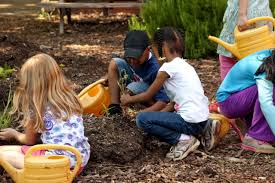Gardening Grows Flowers, Fruits, Minds and Bodies
go.ncsu.edu/readext?583314
en Español / em Português
El inglés es el idioma de control de esta página. En la medida en que haya algún conflicto entre la traducción al inglés y la traducción, el inglés prevalece.
Al hacer clic en el enlace de traducción se activa un servicio de traducción gratuito para convertir la página al español. Al igual que con cualquier traducción por Internet, la conversión no es sensible al contexto y puede que no traduzca el texto en su significado original. NC State Extension no garantiza la exactitud del texto traducido. Por favor, tenga en cuenta que algunas aplicaciones y/o servicios pueden no funcionar como se espera cuando se traducen.
Português
Inglês é o idioma de controle desta página. Na medida que haja algum conflito entre o texto original em Inglês e a tradução, o Inglês prevalece.
Ao clicar no link de tradução, um serviço gratuito de tradução será ativado para converter a página para o Português. Como em qualquer tradução pela internet, a conversão não é sensivel ao contexto e pode não ocorrer a tradução para o significado orginal. O serviço de Extensão da Carolina do Norte (NC State Extension) não garante a exatidão do texto traduzido. Por favor, observe que algumas funções ou serviços podem não funcionar como esperado após a tradução.
English
English is the controlling language of this page. To the extent there is any conflict between the English text and the translation, English controls.
Clicking on the translation link activates a free translation service to convert the page to Spanish. As with any Internet translation, the conversion is not context-sensitive and may not translate the text to its original meaning. NC State Extension does not guarantee the accuracy of the translated text. Please note that some applications and/or services may not function as expected when translated.
Collapse ▲Even though the gardening season still seems far away, it is not too early to start planning for your garden. Gardening is a wonderful way to introduce children to plant science, stimulate inquiry, creativity, and an opportunity to gain skills that last a lifetime. Garden-based learning is a hands-on experience where children of all ages can learn and grow together. The best news is that you do not need a large yard to start a garden. You can grow fruits, flowers, vegetables, and even trees in containers, on patios, or in community gardens. Gardening with children is not only extremely rewarding, but it also engages youth in activities that teach them valuable life skills such as responsibility, problem solving, decision making, caring, and teamwork.

Whether it is flowers or vegetables, a garden or potted plant, caring for plants helps children develop responsibility. They also gain a sense of accomplishment and self-confidence as they raise small sprouts up through full blooming beauties. Research has also shown that children who grow gardens show higher levels of knowledge about nutrition and are more likely to eat fruits and vegetables and try new and different foods. Eating fruits and vegetables during childhood has been shown to be an important predictor of higher fruit and vegetable consumption in adulthood, which can help prevent or delay chronic disease conditions over a lifetime.
Additional research (Dirks & Orvis, 2015) has shown that children who are actively engaged in garden projects tend to enjoy learning and show improved attitudes towards education. Third, fourth, and fifth-grade students who participated in gardening activities scored significantly higher on science achievement tests than those who did not experience any garden-based learning activities. Scientific discovery abounds in gardens. Insects, worms and other creatures are attracted to plants growing in a garden. Children learn by observing the ecosystem in a garden.
The benefits of gardening are far-reaching and long-lasting. Whether your child grows flowers in a pot on the patio, or fruits and vegetables in a backyard garden, they will gain experiences and skills that translate to all areas of their lives. There are many avenues available to families and children to experience the rewarding world of gardening and plant science, both at home and in the community.
One way to get your child started is the Currituck County 4-H Junior Master Gardener℠ volunteer program. This year-long program offers a wide variety of activities and experiences that will enhance basic knowledge of plant science and horticulture and provide opportunities for skill development. Aquaponics, garden design, fruit and vegetable cultivation, meal planning from the garden, and ornamental gardening are just a few of the planned activities. Each of these activities will also provide youth with experiences designed to promote skill acquisition and development. Youth will be engaged in activities that promote growth in the areas of teamwork, responsibility, personal nutrition, problem solving and creative design-just to name a few. And while this program is designed for youth, 4-H is a family oriented program so parents are always welcome to learn and grow alongside their children.
For more information on 4-H youth programs and activities contact Sherry Fischlschweiger via phone, 252-232-2262, or email, sherry_fischlschweiger@ncsu.edu.




